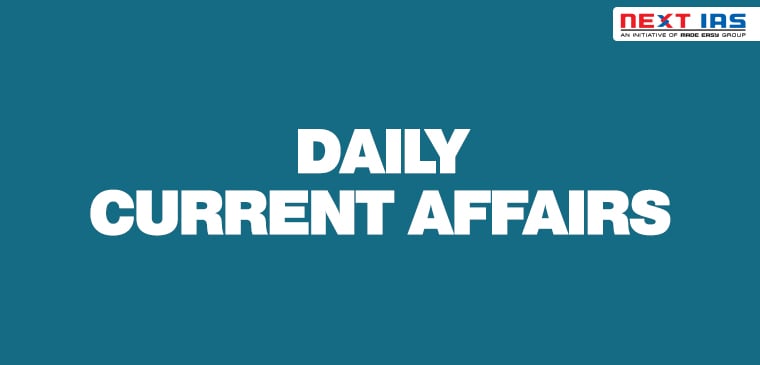
In News
The Department of Agriculture, Cooperation and Farmers Welfare, entered into a Memorandum of Understanding (MoU) with Microsoft Corporation to start a pilot project in 100 villages of Uttar Pradesh, Madhya Pradesh, Gujarat, Haryana, Rajasthan and Andhra Pradesh.
About
- The MoU requires Microsoft to create a ‘Unified Farmer Service Interface’ through its cloud computing services.
- The government, through this MoU, aims to provide ‘required data sets’ of farmers’ personal information to Microsoft to develop a farmer interface for ‘smart and well-organised agriculture’.
A Digital Push to AgriStack
- This MoU sets in motion the ministry’s plan of creating ‘AgriStack’ (a collection of technology-based interventions in agriculture), on which everything else will be built.
- The government published a consultation paper called The India Digital Ecosystem of Agriculture (IDEA), laying out a proposed framework for ‘AgriStack’, for public feedback. It was done after demands for a public consultation on the digital push in agriculture.
- Geo Hub: As a part of the MoU, a Geo hub will be set up.
- It is a GIS system where all the data can be brought together and analytics can be run to create valuable insights for the agriculture department and the farmers.
- By setting up a geo hub as a ‘proof of concept’, it will be easy to understand how this technology can help in improving the welfare of the farmers and their incomes.
- Creation of Database: The MoUs talk about database creation from particularly three schemes- PM-KISAN (Pradhan Mantri Kisan Samman Nidhi), Soil Health Card and PM Fasal Bima Yojna (crop insurance scheme).
- The data from these three schemes will be compiled and compared with land records data.
- If there is a mismatch, it will be shared with the local authorities for validation and field survey.
Benefits
- Information flow: Agristack will provide all information about farmers and their farming easily to corporations who look at farmers as a consumer base. It will give data to machinery companies or fin-tech companies and to those for whom farmers were suppliers like the food industry, garment industry, etc.
- Marketing Network: FPOs had become the new data collection points as well as market channels for the seed and agrochemical industry and agri commodity traders. This data can be sold by the companies to private input dealers and input companies to aid their marketing network.
- Increasing Commercialisation: The formation of ‘Agristack’ also implies commercialisation of agriculture extension activities as they will shift into a digital and private sphere.
- Provides Indemnity: There is a non-disclosure agreement in the MoU, there is also a clause on ‘limitation of liability’ which essentially provides indemnity for breach of contract.
Challenges
- Information asymmetry: This can lead to information asymmetry, tilted towards the technology companies. This can further exploit farmers, especially small and marginal ones.
- Data Sharing: In all the MoUs, there are provisions under which the agriculture ministry will enter into a data sharing agreement with the private companies of the likes of Amazon, Microsoft and Patanjali. This can lead to breach of privacy.
- Data privacy: The project was being implemented in the absence of data protection legislation. It might end up being an exercise where private data processing entities may know more about a farmer’s land than the farmer himself. Without the safeguards, private entities would be able to exploit farmers’ data to whatever extent they wish to.
- Financial exploitation: Once Fintech companies are able to collect granular data about the farmers’ operations, they may offer them exorbitant rates of interest precisely when they would be in the direst need for credit.
- No fixed selection criteria: The government has now invited more technology / agritech players for collaboration, even though there is no information on the process or criteria of selecting the first five companies.
- Exclusions: Making land records the basis for farmer databases would mean excluding tenant farmers, sharecroppers, women and agricultural labourers. This could also exclude those associated in allied activities such as fishing, beekeeping, poultry, animal husbandry, pastoralism, sericulture, vermiculture and agro-forestry from accessing these services on the digital platform because they may not own agricultural land.
Suggestions
- The government should make further decisions after running various pilot projects and consulting results with other stakeholders.
- The potential in data and technology in empowering farmers could be realised with a balanced flow of information.
- The State governments have to make efforts to mitigate their differences over land ownership with private firms working on pilot projects. There is a need for effective cooperation among state governments and private firms.
Conclusion
- With these MoUs, agriculture has become the latest sector getting a boost of ‘techno-solutionism’ by the government.
- But it has also become the latest sector to enter the whole debate about data privacy and surveillance.
- At the same time, AgriStack will lead to managed land records and corporatisation of agriculture.
|
Four other MoUs under AgriStack
|
Sources: DTE
Previous article
UN MSMEs Day
Next article
Facts in News